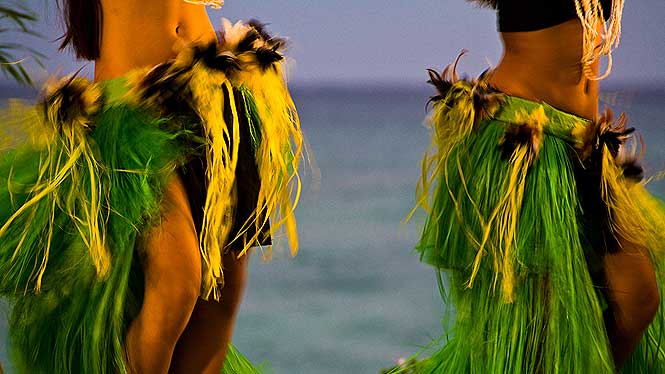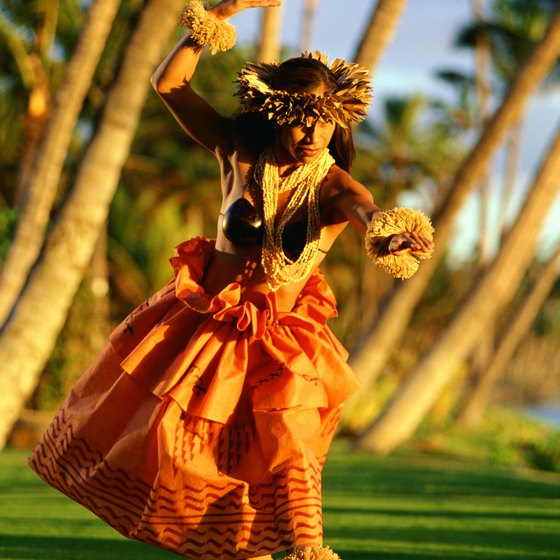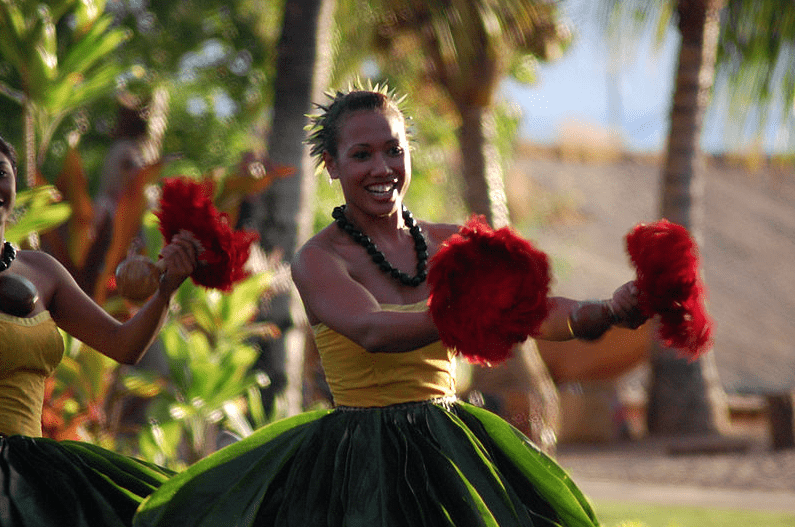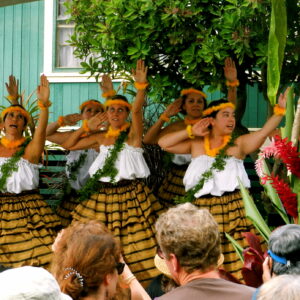So you’re planning a trip to Hawaii and you want to make sure you fit right in with the locals? Well, understanding the local etiquette and cultural practices is key to making a great impression. From the moment you step foot on the islands, you’ll be greeted with the warm spirit of aloha, a word that encompasses love, peace, and kindness. It’s important to show respect for the land and its people, whether it’s through removing your shoes before entering someone’s home or taking part in traditional Hawaiian customs and ceremonies. By embracing the local culture, you’ll not only have a more authentic experience, but also build connections with the vibrant community that calls Hawaii home.

Greetings and Aloha Spirit
Use of Aloha
The use of the word “aloha” is an essential part of Hawaiian culture and greetings. Aloha carries a deep meaning and represents love, respect, and kindness towards others. When greeting someone with aloha, it is important to remember that it goes beyond just saying the word. Embrace the aloha spirit by showing warmth and genuine interest in others.
Greeting with a kiss
In Hawaii, it is customary to greet close friends and family members with a kiss on the cheek. This traditional greeting is a sign of affection and shows that you care about the person you are greeting. However, it is important to be mindful of personal boundaries and only greet someone with a kiss if you have a close relationship with them.
Shaking hands
While a kiss on the cheek is common among close acquaintances, shaking hands is the most prevalent form of greeting in Hawaii. When meeting someone for the first time or in a professional setting, it is appropriate to extend your hand for a handshake. Remember to give a firm handshake, make eye contact, and smile to show respect and friendliness.
Punctuality in greetings
Being punctual is highly valued in Hawaiian culture, especially when it comes to greetings. Arriving on time shows respect for the other person and their time. If you have scheduled a meeting or a gathering, it is important to be mindful of the agreed-upon time. If you are running late, it is polite to inform the other person in advance.
Respectful Behavior
Removing shoes
One common practice in Hawaiian households is removing your shoes before entering someone’s home. This tradition helps keep the house clean and shows respect for the homeowner. When visiting a Hawaiian home, it is polite to remove your shoes upon entering, unless otherwise instructed by the host.
Dress code
Hawaii’s warm climate often allows for a more casual dress code, but it is important to dress respectfully, especially when attending formal events or visiting religious sites. Avoid wearing beachwear or revealing clothing when attending ceremonies or entering places of worship. Opt for modest attire that covers your shoulders and knees as a sign of respect for the culture and customs.
Polite language
Using polite and respectful language is essential when interacting with locals in Hawaii. It is customary to use honorifics such as “Aunty” or “Uncle” when addressing older individuals, regardless of blood relation. Additionally, using common Hawaiian phrases such as “mahalo” (thank you) and “aloha” (hello/goodbye) demonstrates your effort to embrace the local culture and shows respect towards the people you are interacting with.
Avoiding sensitive topics
To maintain a friendly and harmonious atmosphere, it is advisable to avoid discussing sensitive topics such as politics, religion, or controversial issues unless the conversation naturally leads in that direction and the other party is comfortable discussing them. Remember to be sensitive and respectful of different beliefs and opinions.
Explore Uncharted Hawaiian Destinations
Visiting Homes
Bringing a gift
Bringing a small gift when visiting someone’s home is considered a thoughtful gesture in Hawaiian culture. It shows your gratitude for the invitation and appreciation for the host’s hospitality. Consider bringing a token of appreciation, such as a box of chocolates, a bottle of wine, or a bouquet of flowers. It is customary to present the gift upon arrival or send it in advance.
Removing footwear
As mentioned earlier, removing shoes upon entering a Hawaiian home is a common practice. This is not only a sign of respect but also helps keep the home clean. Following this custom shows that you are mindful of the homeowner’s preferences and culturally aware.
Respecting personal space
Respecting personal space is an essential aspect of Hawaiian etiquette. It is important to give others their personal space and avoid invading it unless you have a close relationship with the person. Be attentive to non-verbal cues and maintain an appropriate distance when engaging in conversations or interactions.
Showing gratitude
Expressing gratitude is highly valued in Hawaiian culture. When visiting someone’s home, be sure to thank the host for their hospitality and express your appreciation for the time spent together. It is customary to send a thank-you note or follow up with a phone call to express your gratitude after the visit.
Dining Etiquette
Removing shoes
In Hawaiian culture, it is customary to remove shoes when entering someone’s home, and the same applies to certain dining situations. For example, if you are invited to a gathering where a Hawaiian-style feast called “luau” is being served, it is polite to remove your shoes before sitting down for the meal. This practice helps keep the dining area clean and shows respect for the host.
Proper utensil use
When dining in Hawaii, it is important to use utensils properly. Forks are typically used for solid foods, while spoons are used for soups and rice dishes. Knives are typically used to cut larger pieces of food if necessary. Remember to use utensils respectfully, avoiding excessive noise and chewing with your mouth closed.
Offering food
In Hawaiian culture, the act of sharing food is seen as a symbol of hospitality and unity. When dining together, it is customary to offer others a taste of your food or to pass dishes around the table for everyone to serve themselves. This gesture fosters a sense of togetherness and shows your willingness to share and connect with others.
Leaving some food
In Hawaiian culture, leaving a small amount of food on your plate is considered a sign of appreciation and respect for the host. It indicates that you have been satisfied with the meal and have had enough to eat. It is a polite way of showing gratitude and acknowledging the effort the host put into preparing the meal.

Plan Your Dream Hawaiian Getaway
Traditional Customs
Hula dance
The hula dance is deeply rooted in Hawaiian culture and holds great significance. It is a storytelling dance form that tells tales of history, legends, and nature through graceful movements and gestures. If you have the opportunity to witness a hula performance, it is important to watch respectfully and appreciate the artistry and cultural significance of this traditional practice.
Sharing stories and legends
Hawaiian culture has a rich history filled with stories and legends. Engaging in conversations and listening to these tales shows respect for the local customs and traditions. By showing interest and respecting the stories shared, you actively participate in preserving the cultural heritage of Hawaii.
Lei-giving
The tradition of giving and receiving leis is an important part of Hawaiian culture. A lei is a garland made of flowers or other natural materials and is symbolic of love, friendship, and welcoming. When presented with a lei, it is customary to accept it graciously and wear it around your neck or wrist. Be careful not to remove the lei in the presence of the person who gave it to you.
Traditional greetings
Aside from the warm and familiar “aloha,” there are other traditional greetings in the Hawaiian language that you can learn and use to show respect and cultural awareness. “Hau’oli la hanau” means “happy birthday,” “mālama pono” means “take care,” and “mahalo nui loa” means “thank you very much.” Learning and using these greetings can enhance your interactions and demonstrate your appreciation for the local language.
Respecting Hawaiian Nature and Land
Importance of nature
The natural beauty of Hawaii is an integral part of its culture, and respecting the environment is of utmost importance. Treat the land, ocean, and wildlife with care and refrain from any actions that may harm or disrupt the natural ecosystem. Embrace the spirit of aloha towards nature by being mindful of your surroundings and taking steps to preserve and protect it.
Littering
Littering is strongly discouraged in Hawaii, as it not only harms the environment but also goes against the cultural values of respect and appreciation for nature. Always dispose of your trash properly by using designated bins or taking it with you until you find a suitable disposal location. By keeping the environment clean, you contribute to the preservation of Hawaii’s natural beauty for future generations to enjoy.
Respecting sacred places
Hawaii is home to numerous sacred sites and cultural landmarks. When visiting these places, it is vital to show respect and adhere to any rules or guidelines specified by the local authorities. Refrain from touching or removing any artifacts or items of cultural significance and be mindful of your actions and behavior. By respecting these sacred places, you honor the heritage and spirituality of the Hawaiian people.
Preserving coral reefs
Coral reefs play a crucial role in the marine ecosystem and are abundant in Hawaii. When engaging in water activities such as snorkeling or diving, it is important to be mindful of the coral reefs and avoid any actions that may harm them. Remember not to touch or stand on the coral, as even the slightest disturbance can cause damage. By preserving the coral reefs, you contribute to the sustainability of Hawaii’s marine life.

Experience Hawaii’s Unique Attractions
Cell Phone Etiquette
Minimize phone use
When in the presence of others, it is essential to minimize the use of your cell phone. Being constantly engaged with your phone during conversations or social gatherings can be perceived as disrespectful and may hinder meaningful interactions. Show respect and give your full attention to the people you are with.
Avoid loud conversations
When making or receiving phone calls in public areas, be mindful of your volume. Conversations held in a loud or disruptive manner can disturb those around you and may be seen as inconsiderate. If you need to make or receive a call, find a more secluded or designated area where you can have your conversation without causing undue disturbance.
No photos without permission
Before taking photos of individuals or their surroundings, it is imperative to ask for their permission. Respect people’s privacy and cultural beliefs by obtaining consent before capturing any images. This shows your consideration for others and safeguards their right to privacy.
Silence during ceremonies
If you find yourself attending a traditional ceremony or event, it is important to keep your cell phone on silent mode or turn it off completely. Respecting the sacredness and significance of these events means refraining from any distractions that may disrupt the proceedings or show disregard for the cultural practices.
Cultural Events and Festivals
Attending festivals
Hawaii is known for its vibrant festivals and cultural events throughout the year. If you have the opportunity to attend one, it is a great way to immerse yourself in the local culture. Take the time to learn about the festival’s background and significance, and enjoy the festivities with an open mind and respectful attitude.
Observe protocols
Each festival or event may have specific protocols or guidelines that attendees are expected to follow. Take the time to familiarize yourself with these protocols to ensure you participate respectfully. This may include dress codes, behavior expectations, or certain rituals to observe. By respecting these protocols, you demonstrate your appreciation for the traditions and customs of Hawaii.
Participating respectfully
When attending cultural events, it is important to participate with respect and sensitivity. Observe and follow the lead of the local participants, and avoid appropriating or misrepresenting any cultural practices. Understand the meaning behind the rituals and traditions and engage in them with genuine interest and appreciation.
Understanding traditional practices
Take the opportunity to learn about traditional practices that are showcased during cultural events and festivals. Many events offer workshops or demonstrations where you can learn traditional arts, crafts, or dance. Embrace these opportunities to gain a deeper understanding of Hawaiian culture and show your respect for the local traditions.

Showing Mahalo (Gratitude)
Saying thank you
Expressing gratitude is an integral part of Hawaiian culture. When someone has shown you kindness or extended a gesture of hospitality, it is important to express your thanks. Whether it is through a verbal “thank you” or a handwritten note, showing your appreciation helps foster a sense of community and goodwill.
Offering to help
In the spirit of aloha, offering to help others is a valued practice in Hawaiian culture. Whether it is assisting with chores, lending a hand in community projects, or volunteering your time, offering to help is a meaningful way to show your gratitude and contribute to the well-being of the community.
Volunteering
Volunteering is a wonderful way to immerse yourself in the local community and give back to the people of Hawaii. Many organizations and initiatives welcome volunteers, allowing you to contribute your time and skills towards meaningful causes. Volunteering not only benefits others but also allows you to establish connections and learn more about the local customs and values.
Supporting local businesses
Supporting local businesses is another way to show your gratitude and contribute to the local economy. Whether it is dining at locally-owned restaurants, purchasing handmade crafts, or exploring the services offered by local entrepreneurs, your patronage helps sustain and preserve the unique culture and traditions of Hawaii.
Understanding Local Customs and Superstitions
Significance of turtles and owls
The Hawaiian culture holds strong beliefs and superstitions regarding certain animals. Turtles, or honu, are seen as sacred beings and are considered a symbol of good luck, wisdom, and protection. It is important to approach these creatures with respect and refrain from touching or disturbing them. Owls, known as pueo, are believed to be spiritual guides and messengers. Their presence is seen as a sign of protection and guidance. Show respect for these customs by observing these animals from a distance and appreciating their significance.
Respecting and protecting ancient sites
Hawaii is home to many ancient sites that hold immense cultural and historical value. These sites may include ancient temples, burial grounds, or petroglyphs. It is crucial to respect these sacred places and refrain from touching or removing any artifacts. By showing reverence and protecting these ancient sites, you contribute to the preservation of Hawaiian history and heritage.
Accepting and respecting cultural diversity
Hawaii is a diverse melting pot of cultures and ethnicities. Embrace the cultural diversity and respect the various traditions and customs that coexist in the islands. Remember to approach unfamiliar customs with an open mind and willingness to learn, fostering an atmosphere of inclusivity and appreciation for different backgrounds.
Understanding Kapu (forbidden) signs
In certain areas or during specific events, you may encounter signage indicating “kapu” or forbidden areas. It is crucial to adhere to these signs and avoid entering restricted areas. Kapu signs are in place to protect culturally significant sites or maintain the safety of individuals. By respecting these signs, you contribute to the preservation of Hawaiian heritage and ensure the well-being of yourself and others.
In conclusion, embracing Hawaiian etiquette and cultural practices is not only a sign of respect but also a way to foster meaningful connections with the local community. By understanding and adhering to these customs, you will create positive experiences while immersing yourself in the beauty and richness of Hawaiian culture. Remember to approach each interaction with a friendly and open-hearted aloha spirit, and you will be warmly embraced by the people and traditions of Hawaii.
